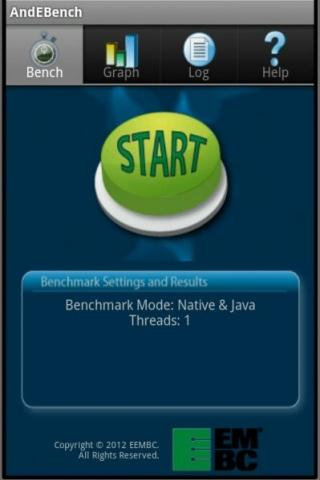Qualcomm has just announced their new Vuforia SDK 2.0 for Android and iOS to enable developers to create augmented reality applications for those platforms. Key new features include: Cloud Recognition Service – Up to now developers were limited to about 100 images on the target device due to limited storage space, but thanks to the Cloud recognition service, apps can “see” more than 1 million images, creating new mobile augmented reality (AR) opportunities for retailers and publishers. For example, every product (or image) in a store can bring associated content from the retailer’s website and render it directly on top of the product (or image). Watch American Apparel AR app video demo for an example of such app. The Cloud Recognition service requires a Vuforia Web Services account which is free for developers (Limited to 1,000 images, 3000 events per months), but is subject to fees for businesses. User-Defined Targets […]
libavg on Raspberry Pi
libavg development team has recently announced a beta port of their multimedia library to the Raspberry Pi. libavg is a high-level development platform for media-centric applications using Python as scripting language and written in C++. I came to know this platform as I tried Xibo Digital Signage, and I tested it on ARM platforms. Up to know this would only work using software rendering/decoding, and everything was painfully slow on ARM, but libavg developers are now making use of OpenGL ES to boost graphics speed. More work is needed, and they intend to eventually support features such as hardware video decoding (OpenMAX possibly via gstreamer) and compressed textures. Installing libavg on Raspberry Pi. Pre-built packages are available for Raspberry, so installation is pretty straight forward:
|
1 2 3 4 5 |
sudo apt-get install libxml2 libpango1.0-0 librsvg2-2 libgdk-pixbuf2.0-0 \ libavcodec53 libavformat53 libswscale2 libboost-python1.49.0 \ libboost-thread1.49.0 libsdl1.2debian libxxf86vm1 wget https://www.libavg.de/site/attachments/download/190 -O libavg-raspberry.tar.bz2 sudo tar -C /usr/local -xjf libavg-raspberry.tar.bz2 |
Running Samples Apps 32 samples are located in /usr/local/lib/python2.7/dist-packages/libavg/samples/ directory, and they rely on X11, so first start LXDE:
|
1 |
startx |
Open a serial console (LXTerminal) […]
2D/3D Graphics Linux Demo (X11, EGL, GLES2, Qt4) on AllWinner A10 Tablet
Xlab (Maxim Kouprianov) has tested 2D & 3D capabilities of AllWinner A10 SoC (with Mali-400 GPU) on a Ployer MOMO11 Bird Edition tablet running OpenEmbedded with kernel 3.0.52+ testing X11, EGL, OpenGL ES2 and Qt4 on the platform, and the results are pretty smooth as you can see in the video below, although there appears to be some flickering in LunaSysMgr demo. The tools used in the demos are xfwm4 (Xfce Windows Manager), es2gears_x11, cube (Qt), LunaSysMgr (Qt/WebOS) and glmark2-es2. Qt4 acceleration is done via XlibGL platform which in turns uses X11-EGL. He used the Mali drivers version r3p0 (mali400-gles20-gles11-linux-x11-ump) and xf86-video-mali on sunxi-linux github repository mainly maintained by rz2k. You can get more details on how to build Mali-400 support for AllWinner A10 on http://linux-sunxi.org/Mali400, and GPU benchmark results for A10 show the drivers seem to work as expected. Jean-Luc Aufranc (CNXSoft)Jean-Luc started CNX Software in 2010 as a part-time […]
List of Android Benchmarks, Optimizations Results & Benchmarks Analysis
Linaro Connect Europe occurred in Copenhagen on Oct. 29 – Nov. 2 2012 (LCE12) and included 3 mini-summits about Android, big.LITTLE and ARMv8. Linaro has recently posted the presentation slides and I’ll have a look at a few of those slides in details and try to post information that I feel can be interesting. Today. I’ll go over the “Benchmarking and Optimization Opportunities” slides, where we can learn which Android Benchmarks Linaro use, how they’ve decreased benchmark results variance, which parts of the system are actually tested by benchmarks (profiling), and what they plan to do to further optimize Android on ARM. When I do some reviews, I usually simply use Antutu and Quadrant benchmarks to assess the performance of the devices, but Linaro uses many more benchmarks which I’ll list below. I’ll provide 2 links for each benchmark. The first link is to the official website and the other […]
Linaro 12.09 Release with Kernel 3.6 and Android 4.1.1
Linaro release 12.09 has just been announced, and includes Linux Kernel 3.6-rc6 and Android Jelly Bean. This release provides further improvement to Android Jelly Bean, Android benchmark characterization, an ARMv8 OpenEmbedded image, UEFI bootloader support for Vexpress, origen and pandabords, and some improvement to big.LITTLE and power management. Here are the highlights of the release: Android All Linaro patches are now available on Jelly Bean. Accelerated graphics is now available on Snowball Jelly Bean build. AndEBench, AndEBench Java, Linpack, CaffeineMark, Antutu 2D and 3D, NBench, Quadrant, I/O Benchmark, Vellamo benchmark hotspot characterization available. An Origen tracking build is available and will be released this cycle as a Linaro Evaluation Build (LEB). Audio works on Origen running Jelly Bean (WAV file only). A Monkeyrunner script to run Streamline has been completed. First rev of the NI PXIe-4154 based power measurement system is created. See http://www.youtube.com/watch?v=9bKyuxLl4iw&feature=plcp In-tree AOSP tests have been automated. […]
Linaro 12.08 Release with Kernel 3.6 and Android 4.1.1 Jelly Bean
Linaro release 12.08 includes Linux Kernel 3.6-rc2 and is the very first release with Android Jelly Bean (4.1.1-R4). The Android platform team has managed to port Android Jelly Bean to all their main development platforms: Versatile Express, Versatile Express RTSM, Samsung Origen, TI PandaBoard, ST Ericsson Snowball, as well as Samsung Galaxy Nexus smartphone. They’ve also added TINY_ANDROID, a minimal Android build that can be used for kernel development, toolchain work and other development where users only need a console. It’s possible to get the source code, build it and access the shell within 10 minutes. U-boot-Linaro has been updated and is now based on the latest upstream release v2012.07. Next month, we might be able to see a preliminary port of Android on 64-bit platform (ARMv8). Here are the highlights of the release: Android Automated Methanol (http://gitorious.org/methanol) browser benchmarking in Linaro Android. Automated over 100 Jelly Bean AOSP tests. […]
Nvidia Has Ported Unreal Engine 3 to Windows RT
After Archos GamePad, more gaming news today, as Nvidia announced Unreal Engine 3 port to Windows RT. The company showcased Epic Citadel demo on Nvidia Tegra 3 based Asus Vivo Tab RT (previously known as Tablet 600) at a press conference held at IFA 2012, in Berlin. The demo above is the full PC implementation running on ARM hardware and renders graphics at 35 to 40fps. The Unreal Engine 3 “Epic Citadel” demo implements the full DirectX 9 pipeline, with shaders and materials. Nvidia also announced that UE3 Windows RT code is available to licensees from Epic now. Jean-Luc Aufranc (CNXSoft)Jean-Luc started CNX Software in 2010 as a part-time endeavor, before quitting his job as a software engineering manager, and starting to write daily news, and reviews full time later in 2011. www.cnx-software.com
ARM Demonstrates Mali-T604 GPU in Samsung Exynos 5 Dual Cortex A15 Processor
For the very first time, ARM showcased on of their latest GPU, the Mali T-604, at SIGGRAPH 2012. There were 3 demos running in a tablet reference platform based on Samsung Exynos 5 Dual Cortex A15 processor clocked at 1.7 GHz: Timbuktu 2 showing improvement brought by OpenGL ES 3.0 such as higher details buffers, shadow comparison, etc… Hauntheim showcasing multiple lightings accelerated with GLES 3.0 and OpenCL (GPU compute) Enlighten, a demo where you can adjust the sun position and see the building shadows move smoothly in real-time.





